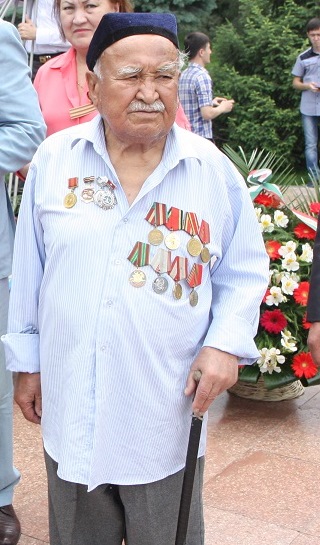
The ceremony at the Memorial Cemetery was especially moving. A long flight of steps leads up to the central point of the complex, past a series of simple monuments representing the Hero Cities of the Soviet Union. We progressed slowly, as a basket of flowers was laid at each of the monuments and honoured by the ambassador of the country to which the city now belongs. It reminded me of the Piskarevskoe Cemetery in St Petersburg, where around half a million of those who died during the siege of Leningrad are buried, a place whose plainness makes it all the more powerful. It is a reminder of acts of extraordinary heroism, but also of the brutality of war and the depths of man’s inhumanity to man.
The Hero Cities in Russia, Belarus and Ukraine are a long way from Tashkent, but a million and a half citizens of Uzbekistan fought in the Second World War in the Soviet armed forces, and some 400,000 of them died.
At the cemetery a military band played solemn music as we laid our flowers, but for the hundreds of Tashkent citizens – families, young people, children – the atmosphere was of a holiday celebration. There were a few veterans, men and women proudly wearing their medals, and small children were encouraged to go and offer them congratulations. The sun shone.
